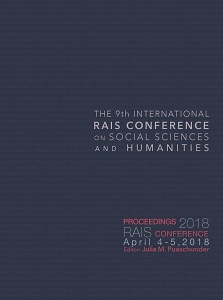Interdependence and superordinate goals: The revenge of the dualists
Interdependence and superordinate goals: The revenge of the dualists
Author(s): W.F. Lawless
Subject(s): Social Sciences
Published by: Scientia Moralitas Research Institute
Keywords: interdependence; goals, social sciences
Summary/Abstract: Appearances can be misleading, but not in the social sciences. Based on the statistical aggregation of intuitions (observations, self-reports, interviews) about reality across individuals that converge while seeking a 1:1 relation, the primary model of decision making attempts to make intuitions rational. But despite its many claims to the contrary, the social sciences have failed in building a successful predictive theory, including in economics where the results from this failure, re-labeled as irrational, have won Nobel prizes, yet irrational humans in freely organized and competitive teams strangely manage to be extraordinarily innovative. In contrast to traditional social science, the most predictive theory in all of science is the quantum theory, each prediction confirmed by new discoveries leading to new predictions and further discoveries, but the dualist nature of the quantum theory makes it counterintuitive despite more than a century of intense, unflagging debate. By re-introducing dualism into social science with a quantum-like theory of social interdependence, we offer an opportunity to rehabilitate social science by successfully making predictions and new discoveries about human teams that account for the abysmal performance of interdisciplinary science teams; that generalizes to the newly arising problem of how to engineer hybrid teams (arbitrary combinations of autonomous humans, machines and robots); and that explains the counterintuitive prediction that highly interdependent teams do not generate Shannon information, but instead “darken” as a team becomes perfect, meaning, intuitively, that structural information about a team can be gained only under competition (i.e., perturbation theory).
Book: Proceedings of the 9th International RAIS Conference on Social Sciences and Humanities
- Page Range: 156-166
- Page Count: 11
- Publication Year: 2018
- Language: English
- Content File-PDF

